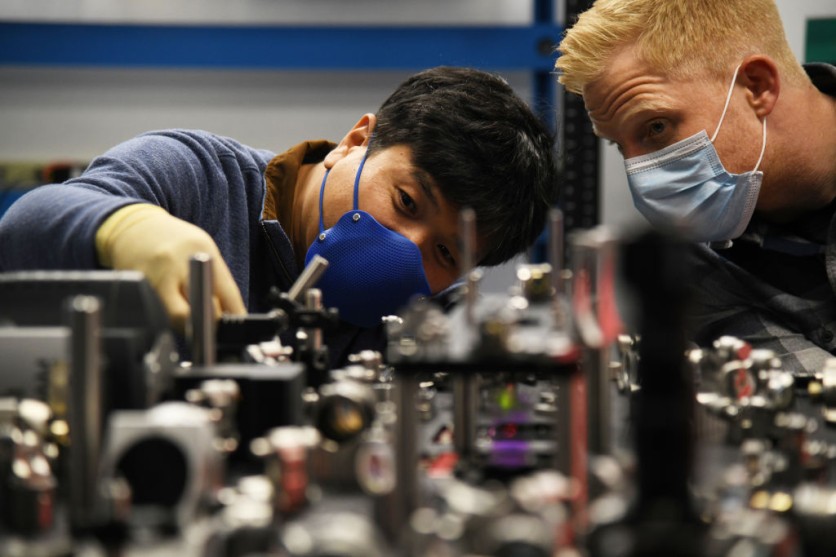
Quantum technology is important for both the economy and the military. So it is understandable that two of the most powerful countries in the world, the United States and China, are competing to see who can bring science to our everyday lives.
After a team of scientists from China created the Micius satellite back in 2017, the satellite that conducted the world's first quantum-secured video call, it was clear that China had taken the lead in quantum communications.
New research suggests that now, the lead has extended to quantum computing too.
Quantum Technology Race Shows China is Leading
In three research papers posted on arXiv.org in June, the physicists at the University of Science and Technology of China or USTC reported the recent advances that scientists have achieved in both quantum computing and quantum communication.
In one of the three papers, the researchers used nanometer-scale semiconductors called quantum dots to transfer single photons over 300 kilometers of fiber, which is 100 times farther than the previous attempts.
Meanwhile, in another paper, the Chinese scientists were able to improve their photonic quantum computer from 76 detected photons all the way to 113, which is a sudden increase to its quantum advantage, making it faster than a traditional computer when it comes to completing tasks.
The third paper talks about Zuchongzhi, which is made of 66 superconducting qubits, and it performed a problem with 56 of them.
Scott Aaronson, a theoretical computer scientist at the University of Texas at Austin, said that the United States is happy with the quantum technology development despite being behind China.
According to Scientific American, all three achievements recorded in the reports are impressive and a massive advancement in quantum technology, but Zuchongzhi is the technology that got scientists talking because it is the first corroboration of Google's landmark 2019 result.
John Martinis, a former Google researcher, said that he is pleased the Chinese scientists were able to produce the Zuchongzhi and was able to show that it works properly.
The Future of Quantum Technology
Both quantum communication and quantum technologies are just coming into existence. None of these researches is likely to be used for many years, according to Forbes.
However, the geopolitical stakes of quantum technology are very high as quantum networks can provide unhackable channels of communication, and a quantum computer could break much of the encryption that is currently used to secure internet transactions and emails.
The tensions between the United States and China are at their highest point in years, with both countries fighting over human rights issues, trade, COVID-19, and Taiwan.
After China demonstrated the Micius satellite in 2017, US politicians responded by investing millions of dollars into quantum information science through the National Quantum Initiative.
Although the United States is struggling to lead the quantum technology race, it is thriving when it comes to the space race.
Zuoyue Wang, a science historian at California State Polytechnic University, said that China and the United States are intertwined in many areas, including science, and it could prevent a hostile competition in the quantum realm.
Currently, thousands of students from China travel to the United States to study, and scientists in both countries are working together to publish researches ranging from zoology to agriculture.
Even though China is leading the race in quantum technology, the United States can still catch up as many science sectors are still untouched.
This article is owned by Tech Times
Written by Sophie Webster
ⓒ 2025 TECHTIMES.com All rights reserved. Do not reproduce without permission.




